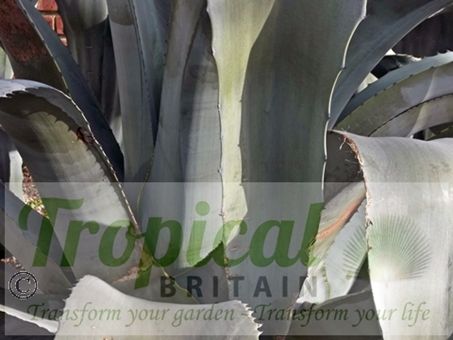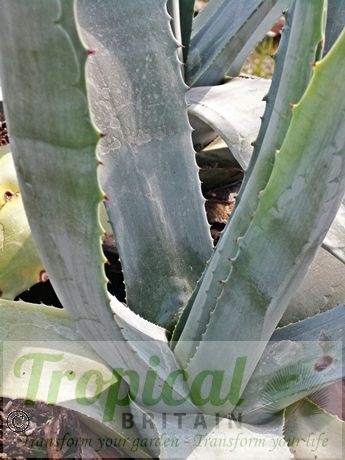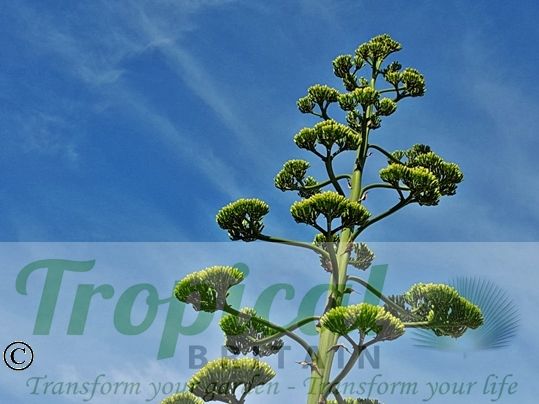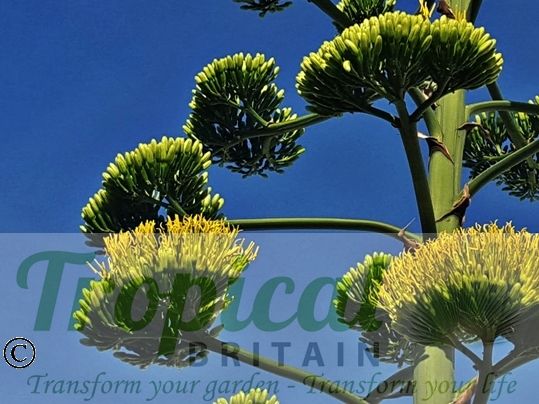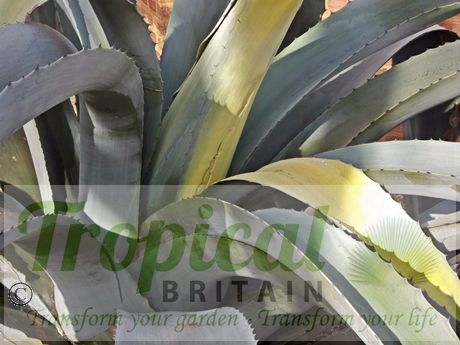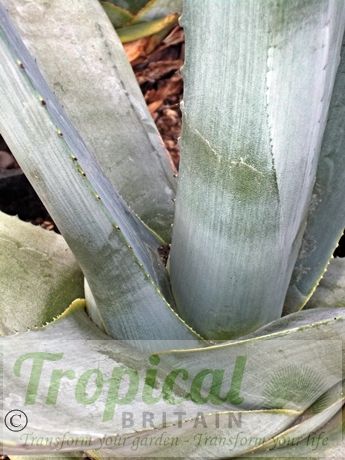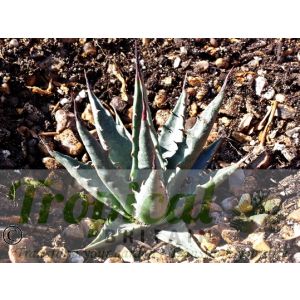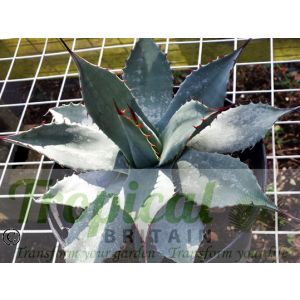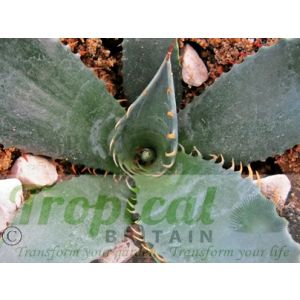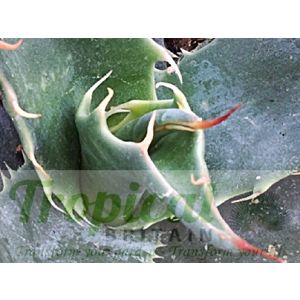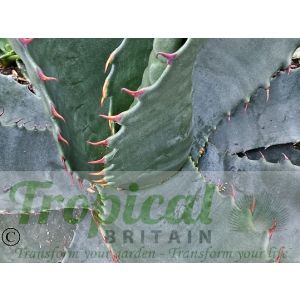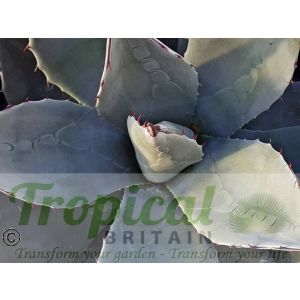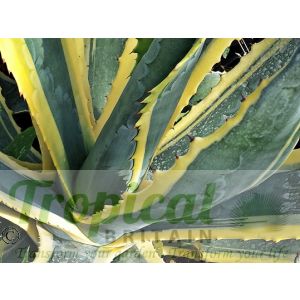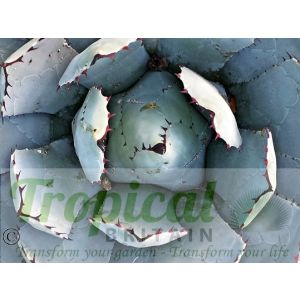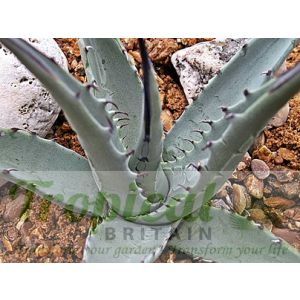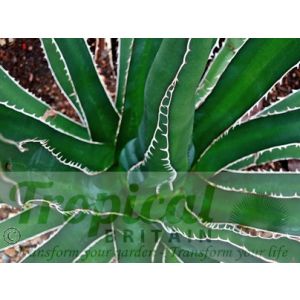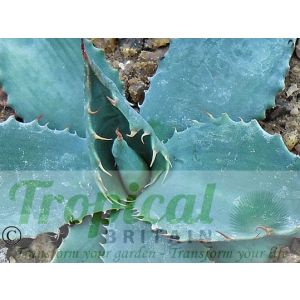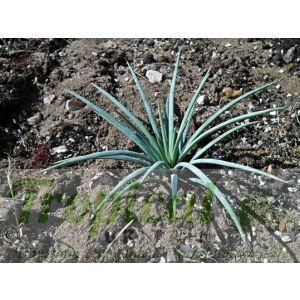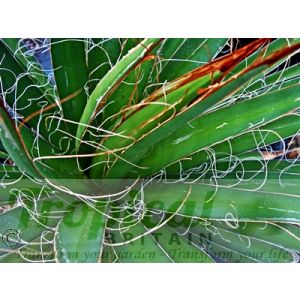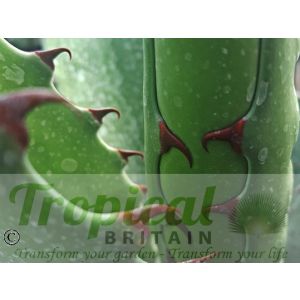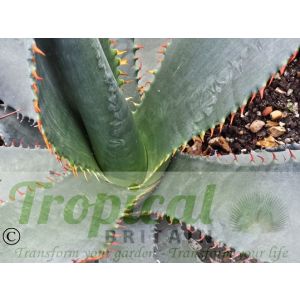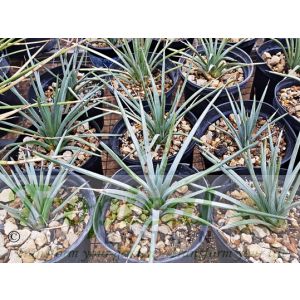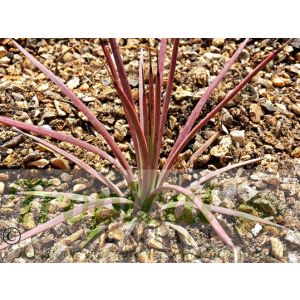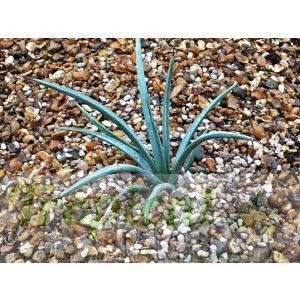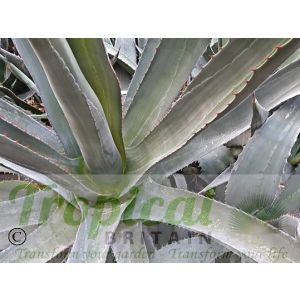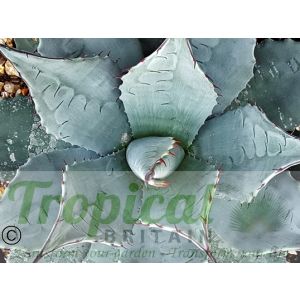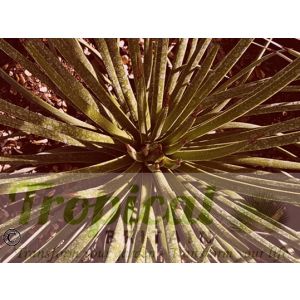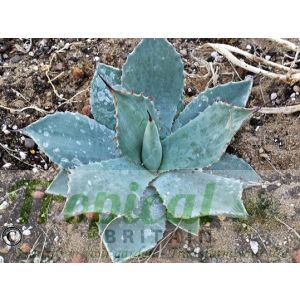Agave americana
- Hardy if given good drainage
- Glaucous blue foliage
- Very large growing
- Sunny position
Probably the most widely cultivated in the UK of all the Agaves, Agave americana is hardy in much of the country if given a very well-draining substrate and a sunny aspect. When young it should be given extra care, helping it through its first few years by keeping it either in a very protected position or ideally indoors over the winter months until it is of a decent size. When it is large enough it can be either planted into its permanant position or potted on into a terracotta planter. Having a relatively small root structure will allow it to be kept in such a container for many seasons, putting it in a warm sunny position in the summer and giving it more protection in the winter. When planting out to a permanent position care should be taken in chosing the site. To give it as long a growing season as possible before the winter it should be transplanted in mid to late spring or early summer as soon as any danger of a hard frost has passed. Over the growing season it will harden up in readiness for winter. It will need plenty of room as it will eventually grow very large and it should have a very free-draining substrate, with very little soil but plenty of shingle and sand in the mix. It will do well on a slope or a bed that has had its level raised above the surrounding area. Planted out like this it is unlikely to ever need watering other than what it gets from the rain and the drier it can be kept over winter the better.
With its blue-grey foliage dusted with a zinc-white bloom and its large upright habit, Agave americana is an extremely handsome plant and - where space permits - should be grown more often. Although there are other Agaves that are more hardy in the UK climate, Agave americana is an indispensible addition to anyone contemplating a drought-resistant garden or desert-inspired planting. Much used in the Mediterranean where it fits in very naturally to the landscape and on the American West Coast where its bold architectural form lends itself to contemporary and xerophytic garden styles, it is an iconic plant whose fast-growing habit will rapidly create a dramatic and imposing presence.
Additional Information
| Order | Asparagales |
|---|---|
| Family | Asparagaceae |
| Sub-Family | Agavoideae |
| Geographical Origin | Mexico |
| Cultivation | Full sun. Dry. A very free draining alkaline substrate with additional sand, grit and shingle. |
| Eventual Height | 2 m |
| Eventual Spread | 2-3 m - usually smaller in the UK |
| Hardiness | Down to -8C in well-drained substrate. |

Free DELIVERY
ON ALL ORDERS OVER £99THIS OFFER IS VALID ON ALL OUR STORE ITEMS.

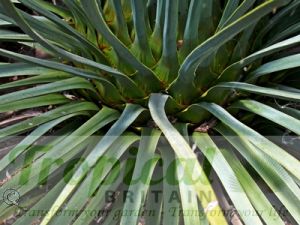
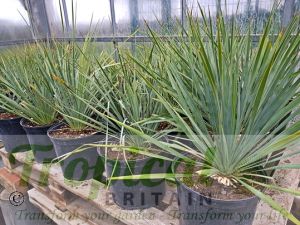
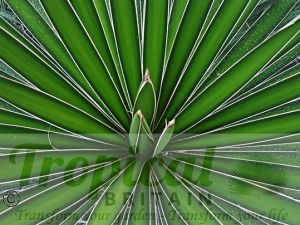
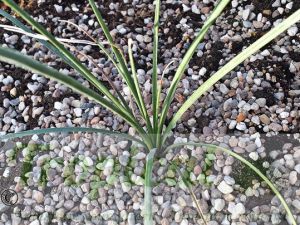
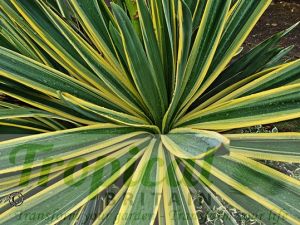
THE PLANTS
- Smaller-Growing Succulents
- Aeonium
- Agave
- Agave americana
- Agave amica
- Agave chrysantha
- Agave cupreata
- Agave deserti
- Agave filifera
- Agave gentryi
- Agave gomezpompae
- Agave havardiana
- Agave horrida ssp horrida
- Agave lechuguilla
- Agave mitis var mitis
- Agave montana
- Agave palmeri
- Agave parryi
- Agave polianthiflora
- Agave striata
- Agave stricta Rubra
- Agave toumeyana
- Agave univittata
- Agave utahensis
- Agave victoriae-reginae - Huasteca Canyon
- Aloe
- Beschorneria
- Bryophyllum
- Dasylirion
- Furcraea
- Hesperaloe
- Hesperoyucca
- Nolina
- Yucca
- Astrophytum
- Austrocylindropuntia
- Brasiliopuntia brasiliensis
- Cereus
- Chamaecereus silvestrii
- Cleistocactus
- Cumulopuntia
- Cylindropuntia
- Echinocereus
- Echinopsis
- Epiphyllum
- Ferocactus
- Gymnocalycium
- Hatiora
- Kroenleinia grusonii
- Lophocereus
- Maihuenia
- Mammillaria
- Matucana
- Myrtillocactus geometrizans
- Opuntia
- Opuntia arenaria SB964
- Opuntia atrispina
- Opuntia basilaris
- Opuntia chisosensis SB992 Brewster Co, TX
- Opuntia cymochila - Brewster Co, TX
- Opuntia engelmannii var. sandia
- Opuntia erinacea
- Opuntia fragilis
- Opuntia humifusa
- Opuntia lindheimeri - Beeville, TX
- Opuntia phaeacantha
- Opuntia pottsii var. nova DJF1441 SW Albuquerque, NM
- Opuntia robusta
- Opuntia sandiana
- Opuntia sanguinicola
- Opuntia stricta
- Opuntia strigil
- Opuntia trichophora
- Oroya peruviana
- Parodia
- Polaskia
- Rhipsalis
- Schlumbergera
- Stenocactus
- Stetsonia
- Tephrocactus
- Alocasia
- Amorphophallus
- Arisaema
- Arum
- Calla
- Caladium
- Colocasia
- Dracunculus
- Monstera
- Helicodiceros muscivorus
- Philodendron
- Pinellia
- Remusatia
- Sauromatum
- Spathantheum
- Typhonium
- Xanthosoma
- Zantedeschia

